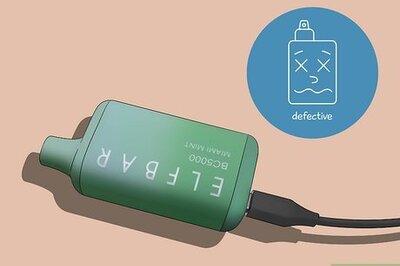
views
Pets are an integral part of our families. We love them and their unconditional love for us encourages us to take complete care of them in terms of health and nutrition. The right diet is of utmost importance to our furry friend’s health and well-being. With a plethora of options available for pet food, we often get confused and don’t know which sources to trust.
“Dogs are omnivores and require both meat and vegetables as part of their diet. Ensuring a balanced diet is the most important aspect of feeding your dog. A well-balanced diet includes both macronutrients like proteins, carbs, fats, and fibre, as well as micronutrients like vitamins and minerals, says Dr. Shantanu Kalambi, Chief Veterinarian, Supertails. The ingredients should be of high quality and in proper proportions to suit the needs of your pet.
There are four major types of foods available. Pay heed to your pet’s nutritional requirement and choose foods that are tastier and beneficial to your canine’s health.
Dry Food: Generally, a more convenient and economical option, as only smaller quantities are required to provide a balanced meal. It also has a crunch and helps improve your dog’s teeth.
Wet Food: Available in smaller individual sizes and best for very young puppies or old dogs. It will keep your dog well-hydrated and can be used for puppies that do not drink a lot of water.
Canned foods: Are generally tastier as they constitute of nutrients like water, protein and fat
Fresh Pet foods: Ingredients include, whole food items, however, vitamins and minerals are still required. The products are most often cooked and are provided in individualized meal portions. But due to their nutritional requirement they are an expensive feeding option.
Most brands have various options for different age groups and breeds. “Choose from the options offered, be careful to feed the puppy in accordance with the directions on the package or the advice of your veterinarian," adds Kalambi.
Remember young puppies require more calories than older dogs. Other factors such as breed, age, activity levels and allergies are also essential to help choose the right food.
Read the Latest News and Breaking News here




















Comments
0 comment